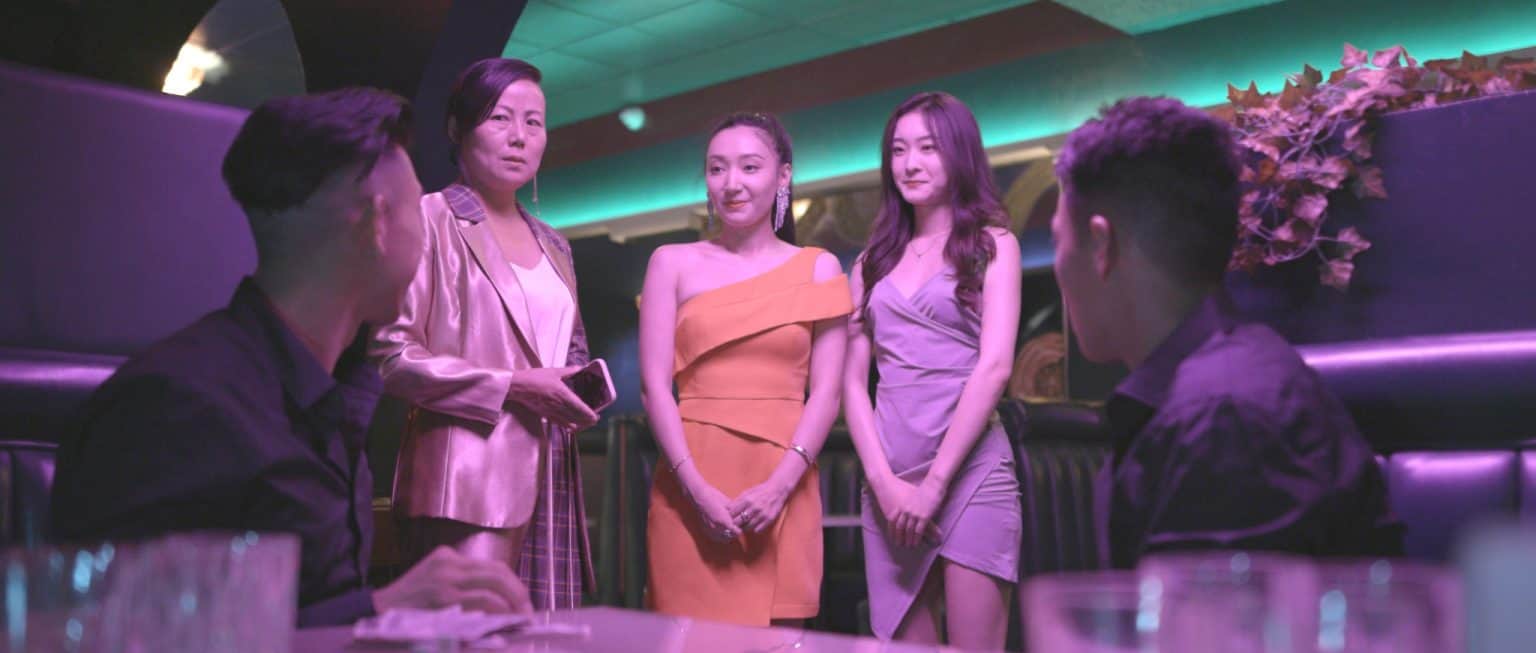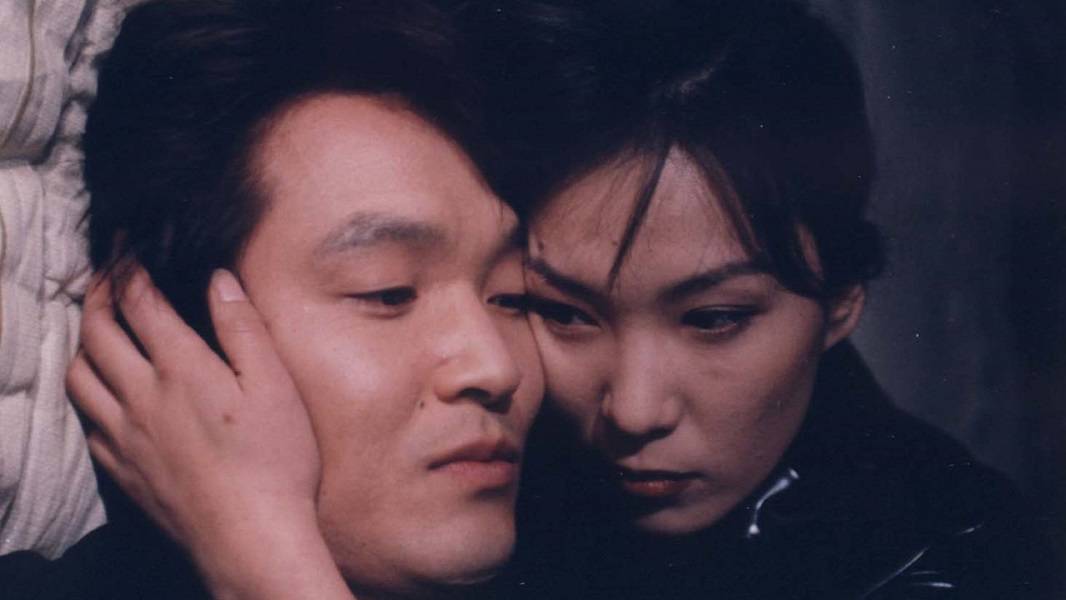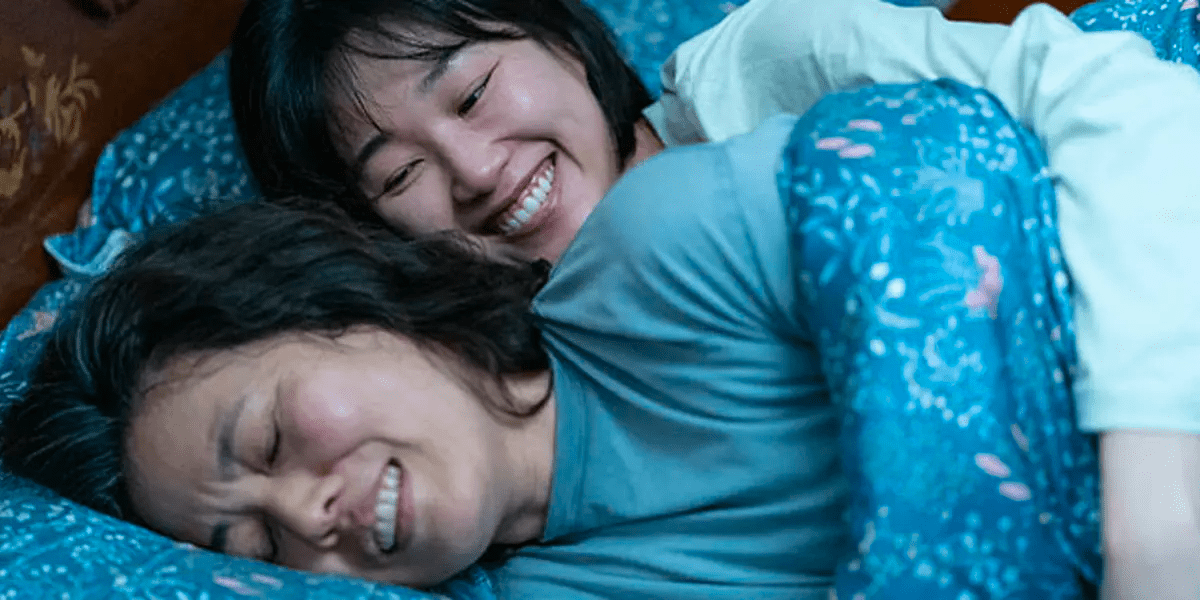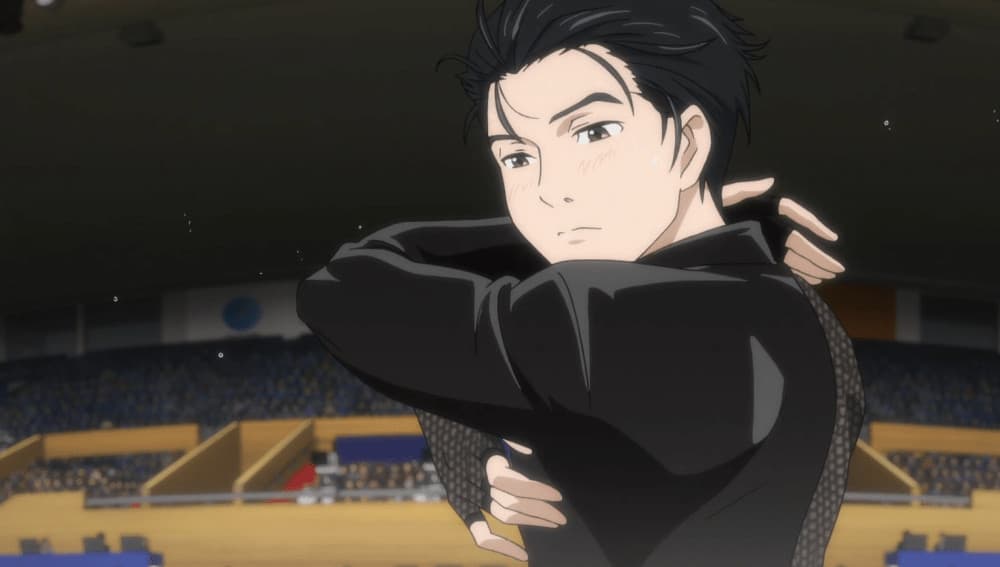Memories, intangible as they are, fade into the dark. As the ravages of time and progress march ever forward at such frenetic speeds, memory and identity risk such a whimpering fate. With the passing of generations, those memories chance survival in history books, in artifacts, in inaccessible stock footage and photographs, themselves doomed to be forgotten by the many. The crises at the heart of Kim Min-ju's ‘A Letter From Kyoto', riddled with secrets and dishonesty, speak from personal to national levels of identity, community, and a need for compassion for one another. A deep, meditative breath away from the breakneck velocity of globalisation, Kim's film is an empathetic snapshot of a family, and a country, in a state of flux.
A Letter from Kyoto is screening at London Korean Film Festival

After being confronted by various setbacks in Seoul, struggling writer Hye-young (Han Seon-hwa) returns to her Yeongdo hometown, a small island nestled on the Busan coastline, to spend time with her mother and two sisters during the anniversary of their father's passing. Though elder sister Hye-jin (Han Chae-ah) resents Hye-young for leaving her to solely harbor the family's responsibilities on her shoulders for a career no one approved of, younger sister Hye-joo (Song Ji-hyun) dreams of leaving for Seoul herself to pursue a career as a professional dancer. Whilst each sister bears secrets that could fatally fray their relationships, their mother Hwa-ja (Cha Min-kyeong) is becoming increasingly forgetful, impacting her place of work and her running of the family home. When Hye-young discovers an old letter from Japan addressed to her mother, more secrets are thrust out into the open, leading the sisters to uncover their mother's past.
Keeping true to the Koreeda domain of family drama a la ‘Still Walking' and ‘Our Little Sister', Kim hones her lens on the incommunicable vulnerabilities these women keep from each other with a degree of intimacy not shared among them. As their pasts, presents, and future dreams and worries are gently revealed, so too does the growing alienation threaten to undo Hwa-ja's role as the family matriarch. Kim goes to great lengths to sow these seeds as the sisters continue to make sense of their lives moving forward. Facing an existential limbo of life in their small Yeongdo community, where local heritage and pride make up their collective identity, the sisters' desperation for something substantial appears to come at a heavy price – sacrificing the ties that bind them for personal gain. Not only does Kim meticulously pace her film to reveal all these hopes and dreams but in doing so realistically embellishes the collective coming-of-age narrative of a country still finding itself.
Check also this interview
The epicentre of the growing rift between Hye-jin and Hye-young however remains over the care of their ailing mother, afflicted with a condition the latter only gains knowledge about some time after her arrival. Disapproving of her sister's decision to leave them for Seoul, it becomes apparent how much Hye-jin has had to sacrifice, forgoing dreams of seeing the world to work in a trainer store for her ex's father. Han Chae-ah's brutally heartfelt portrayal of the woman bearing the brunt of the family's well-being is both nuanced and empathetic, carrying the weight of her character's responsibility so deftly upon her shoulders; only when Hye-jin begins to let her guard down around a European man Piotr does she let off any steam. In contrast, Han Seon-hwa delights as the favourite daughter who is caught at a crossroads trying to figure out her role in her own life as well as within her family's.
This epicentre, however, powerfully resonates through Cha Min-kyeong's performance, unearthing a multitude of afflictions for Hwa-ja with which she brings a distinctly profound understanding. Central to ‘A Letter from Kyoto' Hwa-ja undeniably exudes inner conflict – her role as mother is soon coming to an end – and once the aforementioned letter is discovered by Hye-young, she is forced to be open to all three daughters about a heritage only she confides with to an old friend. Confronting her national lineage at a time when the memories she desperately clings to begin to fade is a challenge Cha Min-kyeong approaches with such dignity, the impact of its ending (when all four women venture to Kyoto in search of the letter's sender) as well as the cataclysmic confrontation between the three sisters beforehand is all the more devastating.
There is a profound sense of longing beating at the heart of ‘A Letter from Kyoto', a longing for understanding, acceptance, and of identity in relation to home. Home, whether it is to be escaped from or to become closer to it, bears such importance to Kim and cinematographer Kim Seon-hyeong they capture every essence of the word on screen with comfort and warmth, even if at times the concept of home becomes drawn into conflict. Both Hwa-ja's home and the surrounding town of Yeongda feel inviting if not cluttered (though never claustrophobic) and are portrayed as thriving habitats where people come together. Here, the camera, often stationary, captures a picturesque beauty – a stillness in the commotions – bringing this town so vividly to life.
For a directorial debut, ‘A Letter from Kyoto' accomplishes an abundance of contextual and stylistic feats through its carefully-coordinated minimalism. Refraining from treating her sensitive subject matter with typical cinematic sensationalism, Kim grounds her narrative and her characters with the dignity and devotion they all deserve, steadily building up towards a reveal that impacts beyond Hwa-ja's generation. There is nothing grand about Kim's film aside from its reflection of memory, heritage and identity, and purpose that are deeply woven within the fabric of both the film and the history of South Korea – and it needn't be grand. The future for this filmmaker as the memories she keeps alive here.















